Explore Psychology
Psychology Courses
Our collection of psychology courses covers a wide variety of topics for those interested in the study of the human mind and the study of behavior.
Explore our full library of psychology courses:
Psychology 101: Intro to Psychology
Psychology 102: Educational Psychology
Psychology 103: Human Growth and Development
Psychology 104: Social Psychology
Psychology 105: Research Methods in Psychology
Explore our full library of psychology courses:
What is Psychology?
Psychology is the study of the human mind and how it impacts human behavior. The field of psychology includes the scientific examination of thoughts, behaviors, conscious and subconscious motivations, and emotions. The study of psychology also includes exploring the history of psychology, answering questions like "When did psychology begin?" and "Who was the first psychologist?"
Studying psychology is useful for many people, from students looking to understand the human mind to practitioners looking for professional development.
An overview of some of the specific topics in the study of psychology that students can learn about follows below.
- Organizational psychology is the study of how minds work together in the workplace.
- Cognitive science is an interdisciplinary study that explores the thoughts, behaviors, memory, and emotions manifest through biology, computer science, psychology, and other realms of knowledge.
- Abnormal/Clinical psychology studies what happens when the mind works differently than expected. Abnormal and clinical psychologists are interested in mental health and psychological disorders.
- Social psychology takes a look at how the mind works in social interactions.
- Developmental psychology is the branch of psychology that explores how the brain and the mind change throughout the human lifecycle.
- Educational psychology studies the best ways for people to learn, based on how their minds work.
- Psychological research methods/Experimental design focuses on how to create scientifically valid studies so that psychological theories are backed up by data.

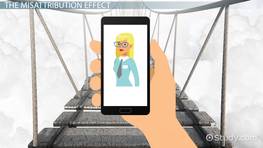
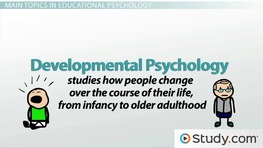
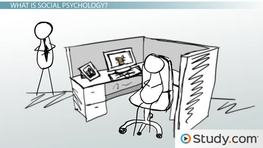

Learn from Psychology experts
Meet our experts
- In what ways can psychology be used in personal and professional areas outside of the classroom or counseling office?
- What are some of the most essential qualities and skills needed to be successful in this field?
- How can students healthily work through moments of heightened academic or personal stress?
- What is the most important tip you have for students to maintain good mental health through their education?
- What are important factors students should consider before choosing a career in psychology?
- In what ways can students show support of peers who are struggling with mental health issues?
- What are common misconceptions people have about psychology?
- What are some physical and nutritional habits that students should adopt to maintain good mental health?

Ana Gamez
Professor of Psychology
Ana M. Gamez, Ph.D., MBA, is a Professor of Psychology and practicum coordinator in Forensic Psychology at California Baptist University, College of Behavioral and Social Sciences. She has 18 years of teaching experience at the graduate level in forensic psychology. She has accumulated 21 years in law enforcement, including 13 years as a police psychologist providing emergency response, psychological support to employees and the law enforcement organization, and organizational consultations. Having instructed thousands of students, Dr. Gamez is passionate about helping students succeed in their academic and professional goals. Dr. Gamez is a licensed clinical psychologist specializing in Police and Public Safety and forensic assessments. Dr. Gamez holds a Ph.D. in Clinical Psychology from Loma Linda University, a Master of Science in Forensic Psychology from California State University Los Angeles, a Master in Business Administration from West Texas A & M University, and a certificate in Diversity, Inclusion, and Equity from Cornell University. Dr. Gamez has co-authored a forensic psychology textbook with Pearson Publication. She also co-authored a textbook chapter with Sage Publication on the selection and hiring of ethical police officers. She has co-authored an article on vicarious trauma for first responders and another on the impact of work-related factors on stress and health among 911 call-takers and dispatchers in California.
In what ways can psychology be used in personal and professional areas outside of the classroom or counseling office?
Outside of the professional and personal realm, psychology helps us to understand human behavior. Those with a graduate background in psychology have professional opportunities to engage as organizational consultations, behavioral consultants, researchers, and statisticians.
What are some of the most essential qualities and skills needed to be successful in this field?
compassion, humanity, ethical behavior, desire to help others..
What are common misconceptions people have about psychology?
A misconception is that psychology only encompasses therapy. While therapy is one of the essential job functions of a psychologist, psychologists also conduct psychological assessments, consultations, training, teaching, research, expert witnesses, and more. Those who go into psychology can earn a BA or BS, MA or MS, and a Ph.D. or PsyD. The greatest scope of practice is at the doctoral level.
What are important factors students should consider before choosing a career in psychology?
Students may need to go beyond the BA or BS degree and complete a master's or doctorate to be able to conduct psychological counseling.
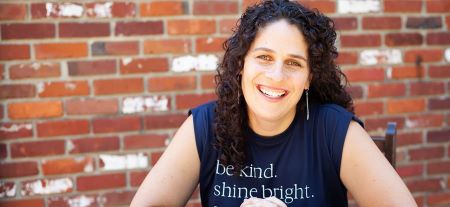
Beth Trammell
Associate Professor of Psychology
Dr. Beth Trammell is a licensed psychologist, author, speaker and advocate for growth promotion and interpersonal effectiveness. In addition to her clinical psychology practice, Dr. Trammell also serves as Associate Professor of Psychology at Indiana University East as well as the University's Director of the Master of Mental Health Counseling program. She specializes in communication and behavioral strategies related to communication, connection, parenting, coaching and education. Dr. Trammell's years of clinical and practical experience perpetually influence the specialized trainings she leads throughout the country.Rooted on the premise of 'Make Words Matter', Dr. Trammell blends the science of psychology with our contemporary culture to illuminate everyday bias; leading us on a transformative path toward authentic and productive interpersonal connections.
In what ways can students show support of peers who are struggling with mental health issues?
Peers can be one of the best supporters during times of mental or emotional distress. If a student suspects one of their friends is struggling, one of the best (and simplest) ways to support a friend is to ask them "How are you?" or "Are you doing okay?" and then use supportive listening strategies. Supportive listening would include listening without judgment, allowing space for the friend to share, and not trying to fix it for them. Empathy and validating their experiences can be one of the most healing moments for people in distress. So students could say things like, "That sounds really hard." or "Is there anything I could do to support you specifically?" to send the message to their friend that they are here to support them.
How can students healthily work through moments of heightened academic or personal stress?
Working through elevated levels of stress involves recognizing the environmental or internal triggers to stress in everyday situations. This can sometimes include pausing to reflect on how our body is carrying stress at various points in the day (e.g., morning, lunchtime, and evening). Doing a quick body scan can help students connect how their body is feeling in relation to what they are saying in their mind about stress. For example, if a student thinks, "I am really stressed." they might then focus in on how their body is feeling (from head to toe) in that moment to identify ways their body is experiencing stress. Continually practicing this level of awareness, coupled with deep, intentional breathing practices are a great place for students to start everyday stress reduction.
What are some physical and nutritional habits that students should adopt to maintain good mental health?
Getting regular exercise, even low impact physical activity, is always good for our mental health. Taking a walk outside or doing stretching exercises can be a quick and easy way between classes for students to sneak in some physical exercise. Being mindful of what students eat daily, as well as how it makes them feel emotionally, is also important. Our bodies need healthy fuel and movement daily to positively impact our mental health as well.
What is the most important tip you have for students to maintain good mental health through their education?
I tend to remind students that stress reduction is not just about reacting when you are stressed, but also doing things intentionally to minimize stress. Sometimes I will recommend that students consider the ways they reinvigorate themselves. By having students reflect and realize the ways they can recharge, they begin on the path toward preventing stress. The second part after reflecting on what reinvigorates them is to then create a plan for how they can engage in these activities on a regular basis. I remind them that recharging doesn't just happen automatically. We must be intentional about scheduling times for recharging or else it won't happen.
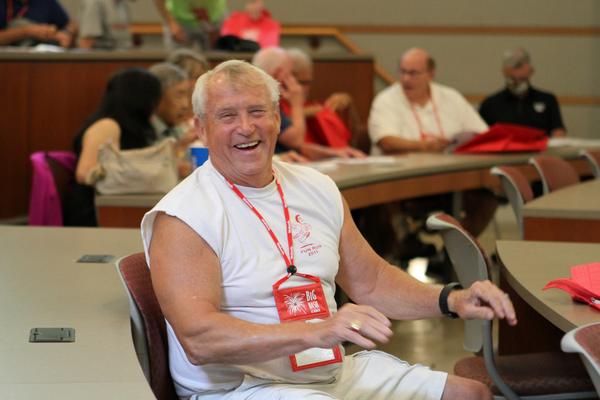
Bruce M. Bradway, Phy.D.
Associate Professor
I have been teaching psychology at the college level since 1991. I have 17 years experience teaching at tribal colleges.
What are common misconceptions people have about psychology?
That we focus on mental illness. What psychologists actually do is accentuate strengths and positive aspects of clients to improve negative feelings. The operant word in psychology is understanding.
In what ways can psychology be used in personal and professional areas outside of the classroom or counseling office?
Psychology is understanding life.
What are important factors students should consider before choosing a career in psychology?
Many people get into psychology because they are trying to improve some aspect of themselves or they are trying to deal with something that has happened to them in the past. But the reality is that you can't help someone else when you are trying to fix yourself. So many psychologists are still damaged while they are in the program but they are actually merely in denial
What are some of the most essential qualities and skills needed to be successful in this field?
Adaptability and willingness to go outside your comfort zone. Being a generalist in any field means that you have knowledge that encompasses all levels and types of expertise.
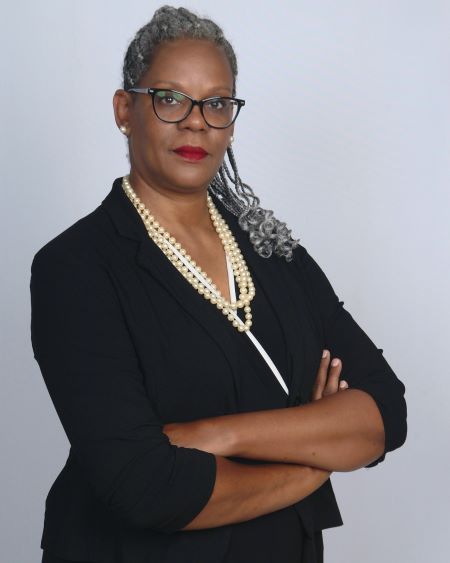
Debbie Hood
Assistant Professor
Debbie Hood, Ph.D. LPC is currently an Assistant Professor with the Department of Counseling at Hampton University. Dr. Hood is the former Hampton manager for Therapeutic Day Treatment services with the Hampton-Newport News Community Services Board. She is the former Clinical Coordinator of the Hampton Juvenile Justice services program with the Hampton-Newport News Community Services Board. She received her B.S. of Psychology, from Francis Marion University (South Carolina) and an M.S. of Rehabilitation Counseling from Virginia Commonwealth University, before eventually earning a Doctor of Philosophy- Counseling Education and Supervision from Regent University (2011). Dr. Hood has had an extensive history of working in childrens mental health services. From an early start of working in a daycare, group home setting, and inpatient psychiatric residential treatment center, she has been dedicated to becoming a holistic provider of mental health services. She has also served as an adjunct instructor at South University within the Clinical Mental Health program. She also collaborated on an article with Regent cohort members, entitled, Cross-Cultural Supervision: Understanding the Unfamiliar Supervisee (2007). Dr. Hood is also a registered Clinical Supervision in the Commonwealth of Virginia.
How can students healthily work through moments of heightened academic or personal stress?
Students can healthily work through moments of heightened academic or personal stress, by first trying to maintain a level of organization. This will level stress. Another tip is being intentional with breaths and decisions, activities, etc.. that are being engaged in.
In what ways can students show support of peers who are struggling with mental health issues?
Students can support their peers who may be struggling with mental health issues, by acknowledging the struggles that are being encountered. Truly being supportive, whether emotionally or even physically. Taking a peer to the counseling office may also be necessary.
What is the most important tip you have for students to maintain good mental health through their education?
Developing an organizational style is most important and getting all your tools in place. Those tools are in many types but are necessary to afford oneself the best opportunity for success.
What are some physical and nutritional habits that students should adopt to maintain good mental health?
Some physical and nutritional habits students should develop and maintain is basically eating regularly. Minimizing fast food, as we know, it's not the healthiest option. Meal planning is another habit that can be most beneficial. All these habits promote good mental health, as it aids in consistency of healthy practices.

Heather Davis
Assistant Professor
Dr. Heather Davis (she/her/hers) conducts research to address questions regarding the risk for and consequences of disordered eating and related psychopathology. In particular, Dr. Davis is interested in the experience of shame in the context of eating disorders, and the potential for shame to serve as a transdiagnostic mechanism underlying comorbidity between eating disorders and comorbid problems, such as alcohol use, depression, anxiety, and self-harm. She uses multiple methods to test questions related to this aim, including laboratory, longitudinal, and ecological momentary assessment designs. Dr. Davis also focuses on the study of groups at high risk for disordered eating, but underrepresented in the eating disorders research literature. She is currently conducting research investigating shame and disordered eating among individuals experiencing food insecurity. Dr. Daviss research has been funded by the National Institute on Mental Health (NIMH) in the National Institutes of Health, the Lipman Foundation, and the Philanthropic Educational Organization.
How can students healthily work through moments of heightened academic or personal stress?
There are several options for students who are looking to increase their healthy coping skills.
First, in moments of extreme stress (heart-racing, feeling overwhelmed and/or highly emotional), I suggest three super-fast skills that can help calm one down quickly so they can pursue the below tips more readily. These skills come from Dialectical Behavior Therapy. The first is related to changing your temperature: splash cold water on your face or dunk your face into very cold water for about 10 seconds (or however long you can tolerate). This activates the "dive reflex" and brings your heart rate down very quickly so that you then may feel a bit more in control of your emotions. The second is intense exercise - this one helps release built up emotions like anger or frustration, and you don't need to do it for long. Even 15 minutes of sit-ups, push-ups, and running in place can be a nice "re-set" in highly emotional times. The third tip is paced breathing - this one includes breathing in and out slower than you normally would. I recommend starting with breathing in for 3 seconds and breathing out for 3 seconds, and building up to about 8 seconds each. This action communicates to your body that you are safe and not in danger.
Second, I recommend that students reach out to their social network (e.g., family, peers, mentors, teachers) to seek support during difficult times. It is important to let your support system know that you need them, so that they can be there for you.
Third, I recommend creating a "coping toolbox." This is a collection of skills ("tools") students can use to cope with difficult feelings or work through challenges. The toolbox should be created by the student so that the skills are personally relevant to them. When first creating the toolbox - which can include physical items in a backpack/literal box, or electronic items on your phone to be easily access wherever you are - I recommend choosing objects that correspond to the five senses. For example, for sight, I recommend having 2-3 pictures of people, pets, or memories that make the student happy. For sound, you might have a playlist or list of your favorite upbeat songs. For taste, you might have some candies or even a written out recipe (cooking and baking tap into multiple senses at once and thus are excellent for coping). The student may also include things like fidget toys, games to play on their phone, and/or sentimental things like notes from loved ones. The box should be in a place that students can see it at all times so it is accessible when needed. To avoid using coping to procrastinate, I recommend setting a timer on one's phone for a limited but healthy amount of time (e.g., 30 minutes).
What are some physical and nutritional habits that students should adopt to maintain good mental health?
Students should know that eating regularly (3 meals and 2-3 snacks per day) is best for maintaining their mental health. When we skip meals or go too long between eating episodes, our blood sugar drops and our mood suffers as a result. Additionally, eating a balanced diet that consists of both very nutritious foods (fruit, vegetables, whole grains, fats, protein) as well as some fun foods (birthday cake, ice cream, cookies), is important for mental health. When we restrict things from our diet that we enjoy, the human brain ends up wanting those things more! So it is best to maintain a balance.
Students should additionally adopt consistent exercise habits doing something they enjoy (e.g. sports, walking, yoga) rather than something that they feel pressured to do (e.g., running marathons). Physical activity is excellent for clearing the mind, and helps to regulate our bodily systems which can contribute to better mental health.
Final, SLEEP is so important! Students should strive to sleep 7-9 hours per day, and nap on days they are not able to get a good night's sleep. Studies show that those who nap are more productive and have better mental health than those who do not nap! A huge share of mental health problems are due to sleep disturbances so it is important your body get rest daily.
Finally, I recommend that if students are struggling to get or keep themselves on track with healthy behaviors and their mental health, they seek professional support in the form of a therapist or counselor. There is no shame in taking care of your mental health like you would your physical health!
What is the most important tip you have for students to maintain good mental health through their education?
Students can maintain good mental health throughout their education by maintaining a healthy work and life balance. This can feel difficult at times - and certainly work-life balance is an ebb and flow because sometimes we just have to work more than other times! - but it is very important to practice. We are humans and not robots - we are not meant to work all the time. I recommend that students maintain their social relationships with family, peers, and mentors, and also their hobbies. School can feel so overwhelming and it is easy to get caught up in the numerous things you have to do and abandon things you used to enjoy (like sports, art, or reading for leisure). I recommend that students build at least 30-60 minutes a day into fostering their hobbies and interests outside of school.
In what ways can students show support of peers who are struggling with mental health issues?
Students can show peers support by doing the following:
LISTEN when your peers are upset. Validate their concerns! This might mean saying "Wow, that sounds really tough." You might feel tempted to offer problem solving solutions - this can be OK, but if you are getting the vibe that your friend does not want solutions, sometimes it is okay to just validate that they are having a hard time. Always refer your peer to professional care (like a counselor, therapist, or the university health center) if you are worried about their safety.